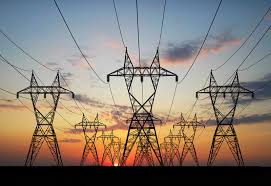

Nigeria exported N181.62 billion electricity from January to September 2024, according to a data analysis by the National Bureau of Statistics (NBS)
N58 billion was .65 billion . exported to Togo, Benin and Nigeria Republic in the first quarter of 2024, followed by N63.28 billion in the second quarter and N59.69 billion in the third quarter
This is despite the Nigerian Electricity Regulatory Commission (NERC) restricting electricity exports to these countries in May in a bid to boost domestic markets
In the order, the regulatory agency directed that the delivery of electricity to Nigeria’s neighbours should not exceed six percent of the total grid electricity at any time, stating that since the implementation of the supplementary order in April 2024, the Commission. had observed suboptimal grid distribution operational practices.
In a document titled: “Interim Order on Food Distribution Operations in the Transport System, Cross-Border. Supply and Related Matters”, it said the directive would initially last for six months before it would be reviewed.
The NERC Order dated April 29, 2024 and effective May 1, 2024 was signed by the Chairman of the Commission, Sanusi Garba, and the Deputy Chairman, Musiliu Osen
He argued that this has compromised the ability of distribution companies (DISCOs) to deliver the service levels achieved by the Service Based Charge (SBT) to end customers, which has a significant impact on walk-in revenues.
NERC stated that the sole reliance of the system operator on the Disco off-load/off-load allocation limitation to manage recurring grid imbalances by prioritizing those who participate. International and Eligible Customers (EC) is neither efficient nor fair.
The practice adopted so far by the operator in managing generation availability, it said, has caused a lot of hardship to Disco customers, including industrial, commercial and residential, especially during peak demand periods, priority delivery of other bilateral contracts, including exports. to international customers.
The Committee noted that the current international and bilateral contracts with generation companies (Gencos) have been based on the best effort principle and with flexible terms that are often below the minimum contractual standards currently in force in the industry.










